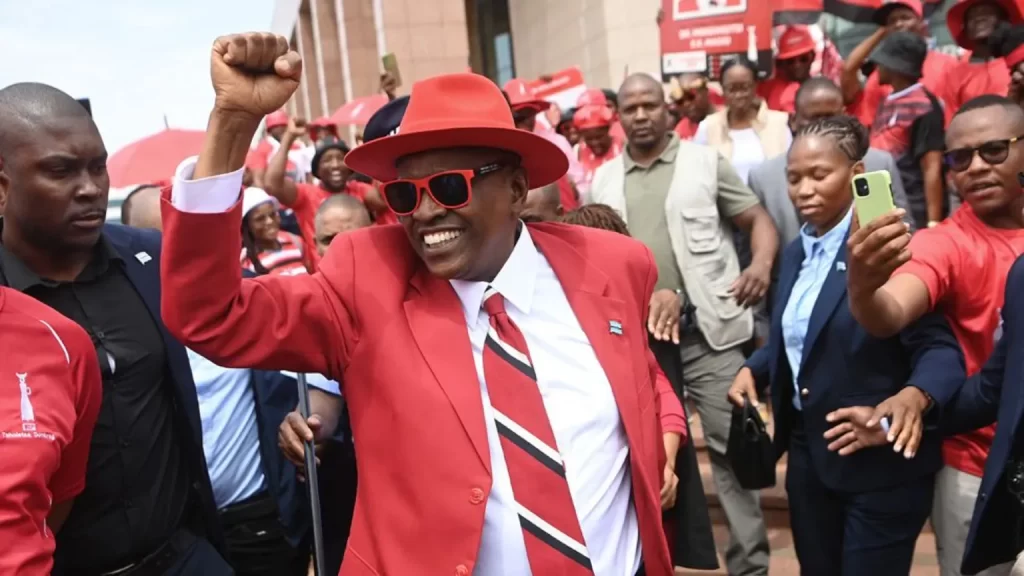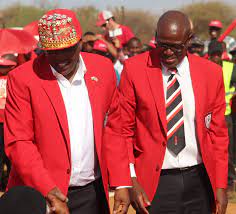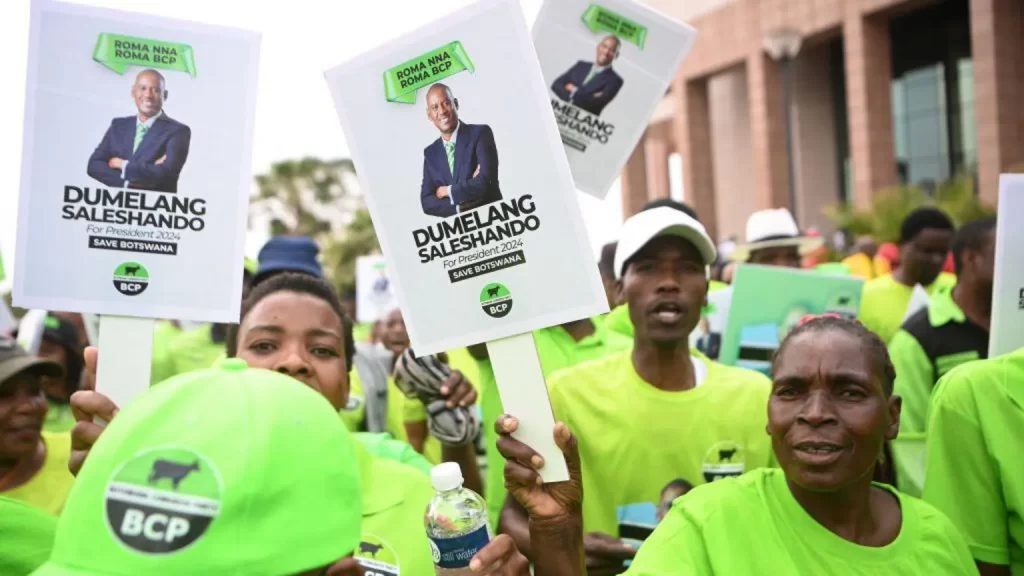As Botswana heads to the polls on Wednesday, the governing Botswana Democratic Party (BDP), which has held power for almost 60 years, is promising change to address the country’s pressing economic challenges.

In his manifesto introduction, President Mokgweetsi Masisi, who has led the country since 2018, writes, “Let’s change together and build prosperity for all.” This acknowledgment that things need to be done differently is a departure from the party’s usual campaign message of stability and continuity.
Botswana has long been hailed as a success story in Africa, with the BDP credited for overseeing a peaceful transformation from a poor country at independence in 1966 to one with among the highest living standards on the continent. This growth has been largely driven by Botswana’s vast diamond reserves, which make it the world’s largest producer of the gemstone by value.
However, the country now faces significant economic hurdles. More than 25% of the working population is unemployed, with even higher rates among youth, according to the World Bank. University of Botswana politics professor Zibani Maundeni described it as a “jobless economy,” telling the BBC, “We are producing graduates every year and the economy is not producing enough jobs for them.”

Moreover, Botswana’s wealth is not evenly distributed, with researchers ranking it as one of the most unequal countries in the world based on the Gini index. The diamond industry, the backbone of the economy, is also under pressure as global demand has been falling.
Despite these challenges, Masisi and the BDP project confidence. At a recent campaign rally in an opposition stronghold, the president arrived in an electric vehicle assembled in Botswana, dancing towards the stage and greeting supporters with humor and charisma.
The area had elected three opposition MPs in 2019 after former President Ian Khama defected from the BDP to help form the Botswana Patriotic Front (BPF). Khama, who picked Masisi as his successor, later accused the government of trying to poison him and was charged with money laundering, which he denies.
Masisi pleaded with voters to return to the BDP, and some rally attendees seemed convinced. Hair-salon owner Thandiwe Potso, 32, said, “Masisi truly understands our challenges and brought better programmes to fund our businesses.”

However, an Afrobarometer poll earlier this year found that many Botswanans have a negative view of the government, believing there are high levels of corruption. BDP spokesperson Kagelelo Banks Kentse questioned the poll’s credibility but admitted the party is not overconfident, saying, “You never win before the actual vote.”
Opposition parties argue that the BDP is not the right agent for change. Dumelang Saleshando, leader of the Botswana Congress Party (BCP), said the government has merely copied others’ ideas and deployed the slogan “Save Botswana.”
Duma Boko, leader of the Umbrella for Democratic Change (UDC), which secured the second-largest vote share in 2019, alleged attempts to rig the poll and urged supporters to remain vigilant.
While the government faces problems that could dent its support, divisions among the opposition could enable the BDP to maintain power. Botswana’s first-past-the-post electoral system means the BDP only needs the largest number of votes in a constituency to win a seat, potentially allowing it to benefit from a split opposition vote.
Political analyst Lesole Machacha told the BBC that the election is closely fought and unpredictable, with both the opposition and the ruling party facing internal issues.
As one of Africa’s most successful political parties seeks to extend its long tenure, the question is whether enough Botswanans believe it can deliver the change the country needs in the face of significant economic challenges.
a BBC story



